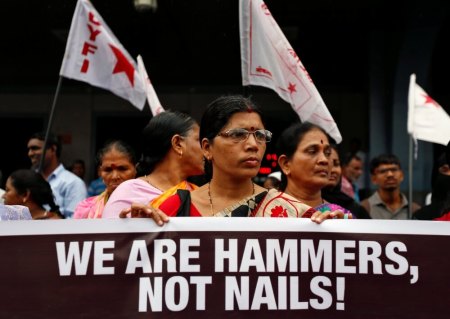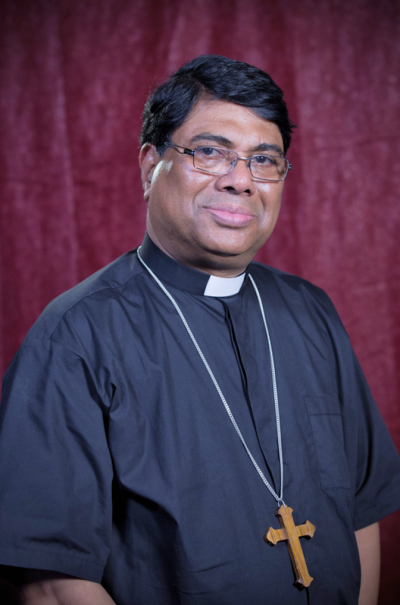A Monumental Shift in India's Caste System

The basis of India's caste system is the preservation of the purity of blood, and, if India is honest with herself, such ideology is a close cousin to the Aryanism that drove Nazi Germany to eventually murder countless millions in order to promote "racial purity."
According to the Manusmriti — the manual on the caste system — the blood of the upper castes gets polluted when there is a mixed marriage with someone from a lower caste. Detailed instructions are therefore outlined in order to prevent inter-caste relations of any kind, including marriage. The consequences of violating them can be dire: in some cases, families have publicly lynched their sons and daughters because they were in an inter-caste relationship.

Therefore, when Mohan Bhagwat — the present leader of one of India's largest oldest nationalist outfits, known as the RSS — broke with centuries of tradition and called upon his volunteers to marry people of other castes, we should all realize that a monumental shift is happening in India. We must applaud this courageous action. If Bhagwat continues on this path, he will have tackled one of the subcontinent's most persistent and far-reaching crimes against its own people.
This new day for India's long-forgotten lower castes began with last summer's historic uprising. In an unprecedented wave of organized protest, India's "lowest" caste, the Dalits — sometimes called "untouchables" — took to the streets in the tens-of-thousands and together voiced a thousand-years-worth of pent-up hurt and indignation. Their collective cry awakened the world to the dehumanizing ways in which they suffer daily.
I have written previously that the tipping point for the caste system is fast approaching; India cannot ignore this injustice any longer. The Dalits can feel hope around the corner! Now is the time for international leaders to join those of us who have been raising our voices to end caste for decades.
But before Dalit emancipation can truly come, we first need to understand that the problem of the caste system is not Hinduism, but the specific ideology known as Brahmanism, which teaches that all men are not born equal. You can be a good Hindu without believing in caste.
According to ancient Brahman teaching, Indians are born into predetermined groups — or varnas — which define the trajectory of their entire lives. Priests sit at the top of the totem pole, followed by those in power, then merchants, and, subsequently, the common laborers. Dalits are ranked so low in this hierarchical system that they are officially not considered part of it.
If asked today, most Indians will say they do not hold on to this ancient blueprint of social stratification, but millennia of prejudice and privilege have allowed its destructive effects to ingrain themselves in India's present.
And though in practice it might manifest itself through social customs — like refusing to touch the eating utensils of a lower caste — or the resulting poverty and educational inequality due to the constant denial of basic rights, at heart this is the same kind of discrimination that has reared its ugly head throughout the ages in cultures across the world.
From Hitler's mission to create a pure-breed Aryan nation, to the apartheid in South Africa, the Hutu-Tutsi divide in Rwanda, and ISIS' crusade to exterminate Christians and religious minorities in Iraq, Syria, and — recently — Egypt, the argument that has paved the way for discrimination has always been the same: one race or group of people is inferior to the other.
Hate doesn't always get the last word. As monumental an obstacle as it may seem, equality for the Dalit is more achievable now than we might believe. Consider the precedent set by Rwanda after the 1994 genocide.
After the genocide, Rwanda had to confront its deep-seated ethnic conflict between the Hutus and the Tutsis. Among the many initiatives the government took to bring healing was removing ethnic identification from government-issued documents and everyday language.
Today, most Rwandans no longer identify as Tutsi or Hutu — they're all just Rwandan. In some cases, the children of perpetrators and survivors of the genocide even inter-marry, bringing a depth of unity and intimacy once thought unthinkable between the two groups.
With a population of 1.2 billion people, India dwarfs Rwanda in every possible sense. But our nation can still learn a lesson from this tiny nation. Perhaps the day will soon come when our people will no longer be defined by their caste, but will all be recognized for who they are: simply, proudly Indian.





















